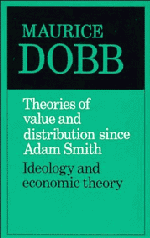9 - A Decade of High Criticism
Published online by Cambridge University Press: 12 January 2010
Summary
It is always difficult to date the birth of a particular set of ideas or trend of thought, and perhaps even harder when this represents a critical reaction against traditional doctrine and an integrated system of related concepts. Any doctrinal innovation has its precursors, its unknown and at the time neglected fore-runners, as we have seen to have been the case with the ‘Jevonian revolution’. Commonly the crucial moment in the theoretical process comes as a synthesis, ‘mediation’ or ‘over-coming’ of previous, more partial criticism, or of ‘false starts’ and incomplete attempts to explore some new perspective and angle of approach. The real novelty may well be the posing of a new question, or of old questions in a novel way, quite as much as finding the convincing answer. The crucial turning-point, however, is not difficult as a rule to identify in retrospect, even if at the time its significance may have passed unnoticed.
Revival of interest in the classical economists of the Ricardian age may well have had a joint parentage in the shift of focus towards ‘macroscopic’ questions of which we have already spoken and the new light on Ricardian doctrine represented by Piero Sraffa's edition of the Works and Correspondence of David Ricardo of the early 1950s (especially the novel interpretations of Ricardo's theory of profit and of his search for an invariable measure of value, modestly embodied in the editor's General Introduction).
Information
- Type
- Chapter
- Information
- Theories of Value and Distribution since Adam SmithIdeology and Economic Theory, pp. 247 - 272Publisher: Cambridge University PressPrint publication year: 1973
